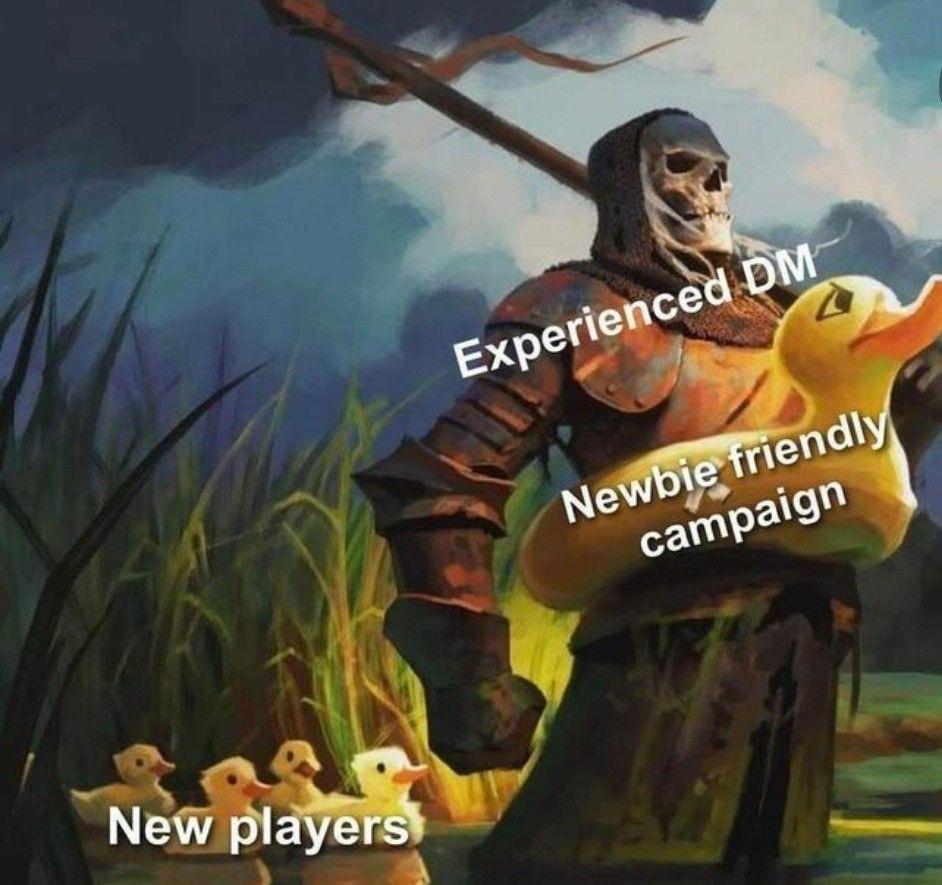this post was submitted on 22 Dec 2024
521 points (99.4% liked)
RPGMemes
10420 readers
350 users here now
Humor, jokes, memes about TTRPGs
founded 2 years ago
MODERATORS
you are viewing a single comment's thread
view the rest of the comments
view the rest of the comments

Some games are designed for you to play complex characters. Like Blades in the Dark. You're supposed to play a hardened criminal. Everyone's going to be new to the game at some point and need the ghostfence and the spirit lightning explained to them, and it's much more fun to play a character in that game who knows the world well.
So now we are talking about game systems that need you to know the lore? I thought this is about GMs putting work into their world building and newbies not beeing able to grasp it.
If you are new you build your character with the GM and accept limits he puts in it, because you don't know better anyway. You can always play a character that has more knowledge of the world, once you have a bit of a feeling for what it's like. I have never had the problem of a new player not accepting some limitations to the characters or backstorys made avaible to them.
I think you can play complex characters that are tied in to the world just fine with newbies. I have no idea how to manage my footing when I swing a sword, but many of my characters do! Similarly, my quick-fingered thief likely knows a great deal about the ghost field that I've yet to learn (I think this is what you meant? The only ghost fence I'm seeing is from Morrowind).
The way I've handled this is to give a quick, concise rundown about a topic right when it becomes relevant, or looks about to become relevant. I keep it limited to just what they need to know for what's happening now, and only expand on it if asked. Being relevant to what they're doing right now makes it easy to focus on, and being able to experiment with it right then helps it stick for them.
If it's something just one or two people should know (like how their automatons function, or the political situation of their distant cousin's family that they're walking into), I'll try to give the information just to that player . And if they improvise or expand on what I said, I do whatever I can to make what they said true - that kind of player buy-in is absolute gold, no matter how it might diverge from what I had in mind!
The idea is to teach complex game elements in play as much as possible, rather than explain them. They'll remember the intricacies of court a lot better if they discover them while being cats-paws, or running a heist! (This is also how I introduce GURPS to people - start with the simple rules, and if they want to try something different, we'll walk through how that part works. If they didn't like how that worked, we try a different way next time - either different rules for it, or a different approach).